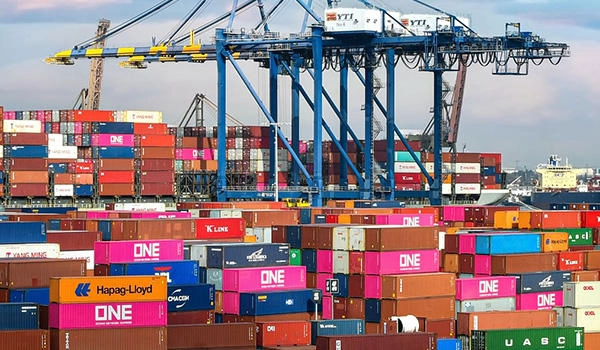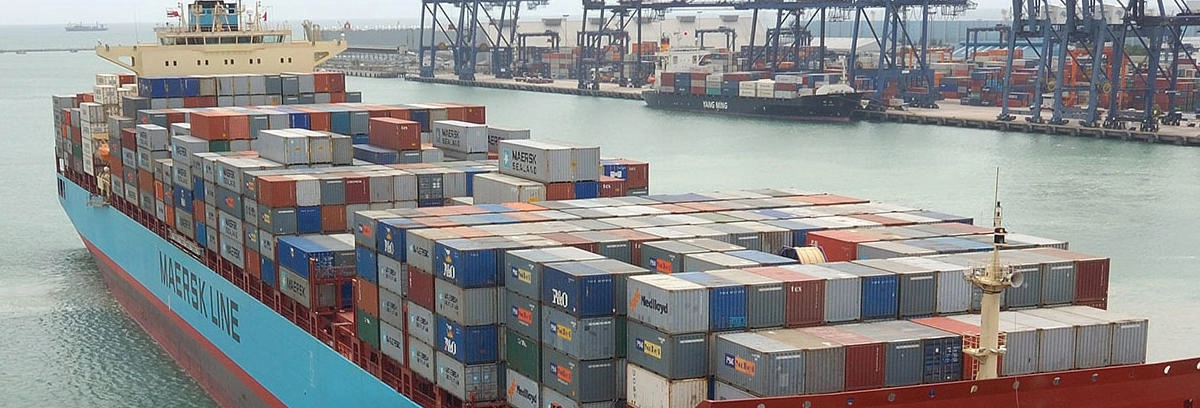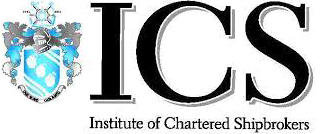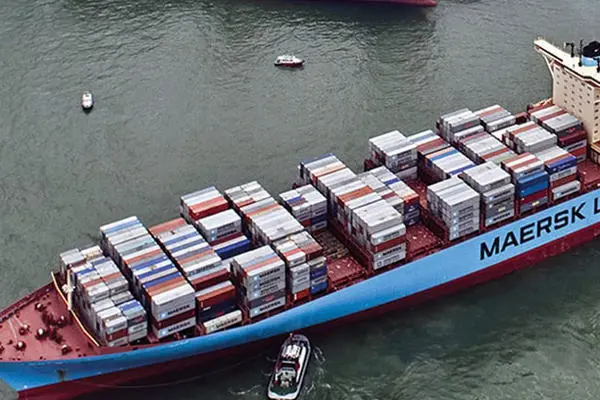
“The University creates assignments similar to real industry situations and challenges.”


If you’re looking for an exciting international career and playing a key part in global trade, Solent can offer you the vital skills needed for this fast-moving business environment.
Contact international admissions
Email: Call:The maritime business sector is global, fast moving, multidisciplinary and strongly influenced by geopolitical change. This course was developed to meet the needs of a dynamic maritime industry with a complex business environment. It will enable students to develop their knowledge, understanding and skills to meet the challenges of their future careers.
Stimulating and intellectually challenging the course has a rich blend of theoretical knowledge and practical skills to help to provide students with the attributes required to operate successfully within the international maritime industry.
The course has a strong business, trade and finance focus and explores the complex factors involved in international trade, economics, finance and management of ships and shipping operations worldwide. Students will also examine the key aspects of maritime law, operations, risk management and management strategies in the maritime industry.
You will study real-world problems derived from the industry, explore the practicable applications of theoretical and technical concepts and processes, and develop an analytical approach to problem-solving – along with teamwork, managerial, and effective communication skills.
Taught by a dedicated team with extensive maritime knowledge and experience, and as part of a cohort of students from around the globe, you will develop a truly international network of professional peers and connections, along with a deep appreciation of cultural and business practices.
If you’re looking to study our maritime business degree but don’t have the relevant qualifications or experience, the business and law foundation year will help you develop the core skills and knowledge to progress. Find out more about the business and law foundation year.
This course also offers the option of a placement year. A placement year allows you to put what you've learned in your first and second years into practice in the workplace, gaining valuable real-world work experience before you graduate. Our course and placements teams will help you find the perfect industry placement in your chosen field.
Accredited by:

Accredited by:

This degree is suited to students who have an interest in the world of international trade and shipping and a desire to understand both how maritime business is undertaken and what drives this global industry.
We are very proud of our graduates who are in high demand and have gone on to operational and managerial roles with companies including Clarksons, SSY Global, BRS, Oldendorff, Hansa, Western Bulk, Odjfjell, Cargill, Peak, MSC, Maersk, ONE, X-Press, Inchcape to name a few.
Hear from Solent alumni about where their careers have taken them and how studying at Solent prepared them for their future.

“The University creates assignments similar to real industry situations and challenges.”

The course team has wide-ranging experience and knowledge.
The University cannot guarantee any particular members of staff will teach specific aspects of the course in the future, but will endeavour to ensure the teaching team maintains their balance of experience and qualifications.
Our vibrant campus brings state-of-the-art facilities to enhance your learning and elevate your student experience. Our award-winning teaching building, The Spark is centred around students and offers a stimulating study environment with flexible learning spaces.
Away from studying, why not try out the gyms, fitness studios and sports halls in our £28 million Sports Complex, or watch a blockbuster film at our student-run cinema with Dolby Atmos audio.
Broaden your horizons by adding an international dimension to your CV – essential to achieving success in today’s fast-changing, global environment.
Studying, working or volunteering in another country could be the experience of a lifetime. Enhance your degree by developing important global skills such as knowledge of other countries, language skills, intercultural awareness, adaptability and confidence.
For more information, please email international.mobility@solent.ac.uk.

This module will provide you with the foundation knowledge that is essential to the understanding of shipping as business. This knowledge forms the basis for understanding maritime commercial law and practice.
Develop your understanding of global trade and the relationship between supply and demand for natural resources. Explore how trade routes develop and change in response to new discoveries and socio-economic development.
Shipping is high volume industry with a need to measure cargo, fleet capacity and distances. To be prepared for this business environment, you will learn how to summarise and communicate numerical information and develop skills to deal with complex data.
This module introduces you to economics of the main maritime trades. This covers the impact of the shipping cycle and how freight markets work alongside economic theory and business practice relating to maritime industry.
Identify vessel requirements for the vast array of commodities transported by ship and consider some of the more specialised vessels that work in the industry related to the cargo they carry. Look at how changes in technology and a need for a more sustainable approach will drive change in the industry.
Gain a foundation of knowledge of the typical organisation of shipping companies, ports and other firms that enable the transportation of goods – and people – by ship. You will also look into the organisation of companies that support seaborne trade, such as shipyards, ship chandlers, brokers, insurance firms and more.
Shipping is a global business that is regulated by multiple organisations. You will look at the operations of a range of vessels, and regulations that are in place to ensure safety of crew and cargoes with the need to balance the economic, social, environment and regulatory requirements to successfully manage ships.
This module will provide you with a comprehensive understanding of the commercial and legal issues involved in the carriage of goods by sea. Effectively conduct basic research using a variety of legal research tools, resources and electronic media to locate, organise and apply the core legal concepts that regulate commercial maritime law.
The primary purpose of this module is to demonstrate the impact and influence of advancement in information technology on different business functions such as manufacturing, logistics, finance and commerce.
This module will provide you with a comprehensive understanding of the practical, commercial and legal aspects of ship brokering and chartering.
As you are studying to become a manager in a maritime organisation, this module should prove indispensable for your future career. This is practice-driven module teaches you to interpret financial accounting information, supplier screening, competitor analysis, profit and optimisation.
Please note: Not all optional modules are guaranteed to run each year.
This module will introduce you to basic principles of Marine Insurance It will also give an overview of insurance market and identify the various cargo clauses covering identified risks with the exclusions for indemnity under the insurance. It will give you an overview of how the cargo claims managed.
The maritime industry is undergoing rapid transformation, driven by digitalisation, decarbonisation and an increased focus on sustainability and security. Innovative technologies that improve productivity, sustainability and competitiveness are key to shaping the future of maritime and shipping.
A dissertation gives you the opportunity to undertake an extensive piece of research within your subject area and develop important skills to critically analyse, synthesise and evaluate your chosen topic.
This module considers the issues of strategic management within the complex environment that enterprises operate, where opportunities and constraints are continually developing and changing. It explores a range of strategic management processes that address the complexity and variability of this environment.
This module explains the principles which divide the risk between Hull and P & I insurance, and covers the basic range of circumstances in which risks to parties and ships involved in international trade can be covered and the circumstances in which an indemnity for losses suffered can be recovered.
Investment appraisal, sources of funds, and risk management strategies are all examined in detail within a maritime context. Consideration will be given to new buildings, second hand purchases; the acquisition of other capital assets will also be addressed.
Please note: Not all optional modules are guaranteed to run each year.
During this module, you'll develop the skills in leadership and management needed to sustainably manage business activity and projects. The module begins by focusing on developing your understanding of sustainability and addresses the development of sustainability, its contested nature and interdisciplinary application. The module then moves on to discuss the concepts of ESG (environmental, social, and governance) and their application to the industry, followed by a consideration of the tools and technology available to meet the needs of industry in reaching a more sustainable future.
This module will provide you with a comprehensive understanding of maritime law and practice, which is essential to the understanding of shipping as an international activity. It examines the legal issues which are fundamental to ship operation.
Contact international admissions
Email: Call:Solent’s curriculum framework builds on our unique, creative and applied approach to teaching. The transformation of students’ lives is at the heart of our mission as a university, and our curriculum – informed by the latest theory – reflects this shared educational vision.
Find out more
The student achievement team are on hand to help you succeed during your studies at Solent. They aim to contact you at key times during your time here with personalised information, advice and guidance, by email or phone.
The disability advice team provides information, advice and guidance for disabled students.
All students can access Succeed@Solent, Solent's online guide to getting better grades. It offers extensive, practical information and advice on topics such as academic writing, research and presentations.
One of the most important developments of the last century has been the integration of national economies into a global economic system. This process of integration, often called globalisation, has resulted in a remarkable growth in trade between countries. Shipping is the key link in international trade and wealth creation; it accounts for over 90 per cent of commodities and manufactured goods moved globally.
Our graduates are prepared for careers in international commodity trading, ship broking, ship operations and management among many other exciting roles our graduates have gone on to enjoy nationally and internationally.
Hear from Solent alumni about where their careers have taken them and how studying at Solent prepared them for their future.

“The University creates assignments similar to real industry situations and challenges.”

The Solent Careers team is committed to getting students into great careers.
While you are studying, the team can help you with finding work experience or placements, link you with a mentor, check your CV, or offer one-to-one guidance.
We also have graduate job opportunities just for Solent graduates.

6th
UK uni for sustained employment
Longitudinal Educational Outcomes, 2022
Every student at Solent University will also have the option to study an additional Certificate in Practical Artificial Intelligence qualification alongside their course. Free of charge, the course ensures you'll be prepared for a fantastic and varied career after graduation.

Thinking about studying further than an undergraduate degree? Alumni can get 20% off their postgraduate study.

Get a head start in the exciting, global industry of shipping and logistics - gain the skills and knowledge sought after by employers.
Find out more
Expand your knowledge of maritime business to graduate well-equipped for an international career in chartering, trading, ship management.
Find out more
Build the knowledge, skills and confidence to develop expertise across key areas of operations management, logistics and supply chain strategies within a global risk context.
Find out more
Is it time to take your maritime career to the next level? This two year distance learning programme is ideally suited to maritime professionals who are hoping to move into...
Find out moreThe tuition fees for the 2026/27 academic year are:
For further information, please visit our tuition fees page.
While most course costs are covered by your tuition fees, some essential resources and optional extras may need to be paid for separately. These additional costs are listed below. For advice on budgeting and managing your money, please contact student.funding@solent.ac.uk.
The 2026/27 additional costs are not yet available. For guidance, previous additional costs have been:
Optional costs
Solent University offers a range of bursaries and scholarships that provide financial assistance or waive fees for tuition or accommodation. Each bursary or scholarship has specific eligibility criteria. Check out our bursaries and scholarships pages to find out more.
Cost of living support
At Solent, we understand that the cost of living crisis may be of some concern. To help, we've put together some detailed information to show what support is available and how to make your money go further.
Graduation costs
There is no charge to attend graduation, but you will be required to pay for the rental of your academic gown (approximately £45 per graduate, depending on your award). You may also wish to purchase official photography packages, which range in price from £15 to £200+. Graduation is not compulsory, so if you prefer to have your award sent to you, there is no cost. Extra guest tickets will go on sale after results publication and will be sold on a first-come-first-served basis. The cost per ticket is currently £20. Please note, we do not guarantee there will be any extra tickets available to purchase.
Contact international admissions
Email: Call:Please select an option below:
As a general guide, we look for qualifications that are equivalent to the British high school A-levels.
If you are applying from outside the UK, find information about entry requirements, visas and agents for your country here.
For further information about EU qualifications, please see our course entry requirements document.
For international students who do not meet the direct entry requirements for this undergraduate degree, our trusted partner, QA Higher Education offers the following pathway programme designed to develop your academic and English language skills:
As a general guide, we look for qualifications that are equivalent to the British high school A-levels.
If you are applying from outside the UK, find information about entry requirements, visas and agents for your country here.
For further information about international qualifications, please see our course entry requirements document.
For international students who do not meet the direct entry requirements for this undergraduate degree, our trusted partner, QA Higher Education offers the following pathway programme designed to develop your academic and English language skills:
All international applicants need to be aware that the English language requirements to attend Solent University, and the English language requirements to obtain a visa from the Home Office, may be different. This means that if you meet the Solent University language requirement to gain a place on the course, you may still have to meet additional requirements to be granted with a visa by the Home Office.
We strongly advise all applicants to visit the Home Office website which outlines all the requirements for a successful visa application.
Full-time
Any student applying for the first year of a full-time/sandwich undergraduate course must apply through UCAS (University and Colleges Admissions Service). This includes mature, overseas and EU students.
Nearly all schools and colleges offer their students the facility of applying electronically through the UCAS website using 'Apply'; it may also be used by those applying independently in the UK and overseas. This facility and all course information can be found on the UCAS website: www.ucas.com.
Your application should reach UCAS by 14 January if you hope to enter a course the following autumn. Early application is advised for the most popular subject areas. Late applications may be made until the end of June. The UCAS Code for the University is S30, code name SOLNT.
Find out what happens after you apply
Contextual offers
Solent endeavours to offer learning opportunities to students from all backgrounds. When we receive and review an application, we take into consideration the context and personal circumstances of applicants when making a decision, which means our advertised entry tariff could be reduced.
Find out more about Solent's contextual offers
Top-up route:
We welcome applications from students currently studying a Foundation Degree, DipHE, HNC, HND or modules of an undergraduate degree course at another university, who wish to enter directly into Years 2 or 3 of one of our undergraduate degree courses. Please contact our admissions team for more information: contact us
Applicants who do not have English as their first language will be required to demonstrate an approved level of proficiency in the use of the English language. The agreed minimum requirements for this course are:
TOEFL IBT tests taken prior to 21 January 2026
TOEFL IBT tests taken from 21 January 2026
Qualifications are checked before enrolment, and international students must bring their original certificates or certified copies when coming to study at the University.
Pre-Sessional English programme
The University also offers a pre-sessional English programme for international students who wish to improve their level of English before starting a degree course.
Contact international admissions
Email: Call: